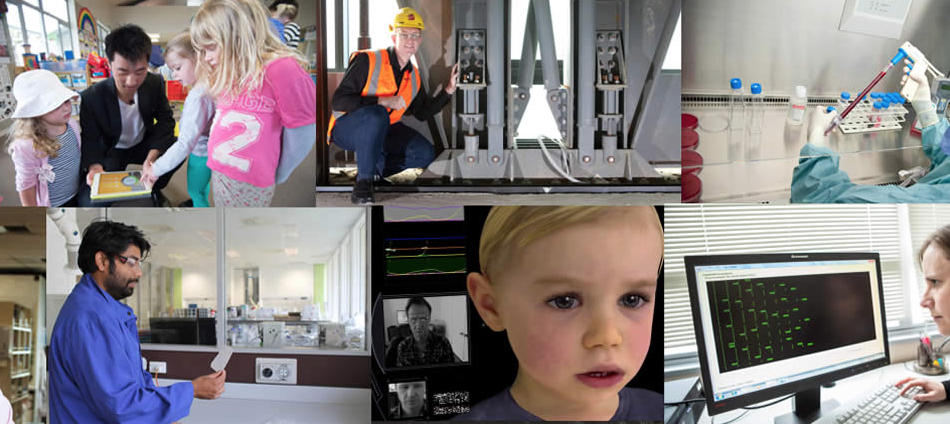Twelve finalists have been selected for the fifth annual KiwiNet Research Commercialisation Awards, designed to celebrate commercialisation success within New Zealand’s universities and Crown Research Institutes.
The innovative researchers and cutting edge research commercialisation projects include: a skin cancer prevention tool, biodegradable plastic packaging, seismic damping solutions for buildings, joint implant diagnostics, carbohydrate chemistry innovations, emotionally intelligent avatars, a surf zone safety tool, CAR-T cell immunotherapy for cancer, Precision Driven Health, unravelling DNA mixtures to solve crime, new medical drug compounds, and a paint that can make cells, bacteria and viruses act differently.
The Kiwi Innovation Network (KiwiNet) is a consortium of 16 universities, Crown Research Institutes and a Crown Entity established to boost commercial outcomes from publicly funded research. CEO James Hutchinson says, “We’ve uncovered another stellar group of innovation game changers from across New Zealand. These researchers are showing how innovative kiwi science is driving prosperity, adding value to our economy and taking our technology to the world.”
The 2017 KiwiNet Research Commercialisation Awards finalists are:
Norman F. B. Barry Foundation Emerging Innovator Award
- Dr Saad Hussain, Scion: Growing New Zealand’s forest-based bioeconomy with packaging innovations .
- Dr Geoff Rodgers, University of Canterbury: Seismic damping for buildings and joint implant diagnostics.
- Dr Daniel Xu, University of Auckland and Spark 64: UVLens personal UV management tool.
Baldwins Researcher Entrepreneur Award
- Prof Richard Furneaux, Victoria University of Wellington: Carbohydrate chemistry innovations.
- Prof Steve Henry, Auckland University of Technology and Kode Biotech: Bioactive paint – Kode Technology.
- Dr Mark Sagar, University of Auckland and Soul Machines: Emotionally intelligent avatars.
- MinterEllisonRuddWatts Research and Business Partnership Award
- Defence Technology Agency and MetOcean Solutions: SurfZoneView – a software safety tool for beach landings.
- The Malaghan Institute (MIMR) and the Hunan Zhaotai Medical Group (HZMG): Trialling CAR-T cell immunotherapies for cancer.
- University of Auckland, Orion Health and Waitemata District Health Board: Precision Driven Health.
PwC Commercial Deal Award
- ESR: STRmix – Unravelling DNA mixtures to solve crime.
- Viclink: Licensing medical drug compounds from Victoria University of Wellington to Biocryst.
- UniServices: Soul Machines – humanising the interface between man and machines.
The BNZ Supreme Award is awarded to the category winner with overall excellence in all core areas of research commercialisation.
The KiwiNet Awards judging panel comprises: Dr Andrew Kelly, Executive Director at BioPacific Partners, Helen Robinson, Executive Chair at Organic Initiative, and Rob Heebink, R&D Executive at Gallagher Group, Bridget Coates, co-founder of Kura and Chairman of White Cloud Dairy Innovation Ltd.
KiwiNet partner organisations include WaikatoLink, Plant & Food Research, Otago Innovation Ltd, Lincoln University, AUT Enterprises, AgResearch, University of Canterbury, Callaghan Innovation, Viclink, Landcare Research, Cawthron Institute, ESR, NIWA, Scion, Malaghan Institute and GNS Science. Principal support is provided by the Ministry of Business, Innovation & Employment (MBIE).
Winners of the KiwiNet Awards 2017 will be announced at an evening reception on 13 July in Auckland.






